#John Bel Edwards
Text
Louisiana governor vetoes state ban on Trans Healthcare passed on ‘propaganda and misinformation’
1K notes
·
View notes
Text
Louisiana Governor DILFs

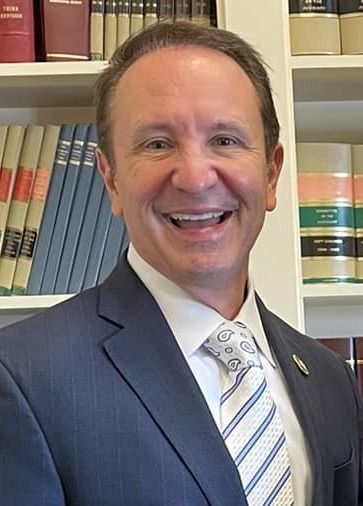
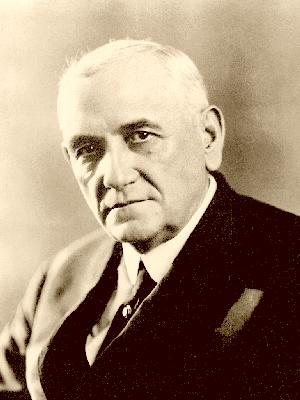




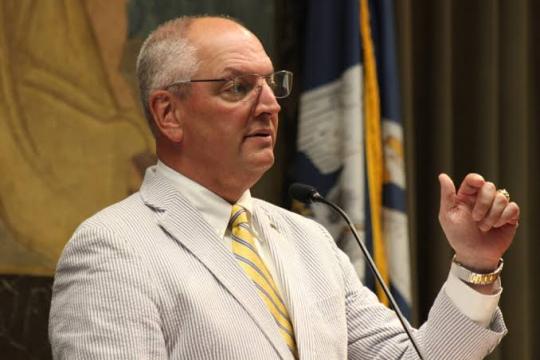

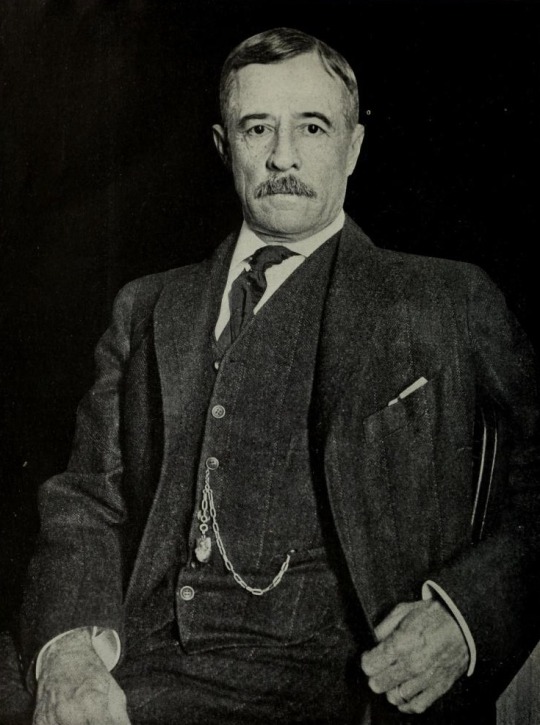
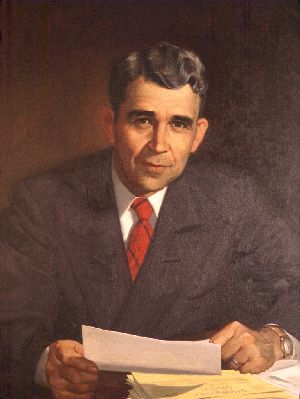

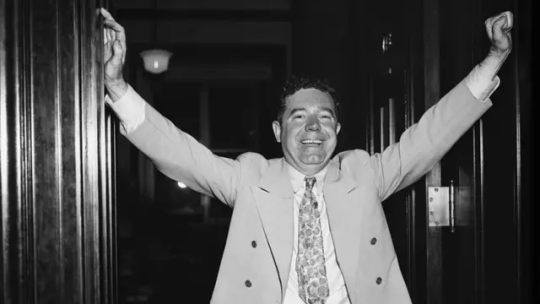
Earl Long, Jeff Landry, Henry L. Fuqua, Buddy Roemer, Dave Treen, Edwjn Edwards, Mike Foster, John Bel Edwards, Jimmie Davis, John M. Parker, Robert F. Kennon, John McKeithen, Huey Long
#Earl Long#Jeff Landry#Henry L. Fuqua#Buddy Roemer#Dave Treen#Edwjn Edwards#Mike Foster#John Bel Edwards#Jimmie Davis#John M. Parker#Robert F. Kennon#John McKeithen#Huey Long#GovernorDILFs
19 notes
·
View notes
Text
Gov. Jeff Landry signed into law Tuesday a bill allowing executions by nitrogen gas and electrocution, opening the door for Louisiana to revive capital punishment 14 years after it last used its death chamber.
Landry signed the legislation, House Bill 6, and 10 other bills into law while surrounded by crime victims' loved ones and law enforcement officials in a ceremony at the State Capitol. HB 6 also shrouds records of the state's procurement of lethal injection drugs in secrecy, a step supporters say will make it easier to obtain those drugs.
The death penalty bill headlined a slate of tough-on-crime legislation approved by the Republican-controlled state Legislature last month and championed by Landry, a Republican and former state attorney general who campaigned on a promise to punish criminals and uplift people affected by violent crime. The new laws reverse a path charted by the state's 2017 Justice Reinvestment Initiative by slashing chances for convicted criminals to be released from prison early and lengthening sentences for some crimes.
"This is what I ran on," Landry said Tuesday.
The Governor also signed bills that allow people to carry concealed handguns without permits, eliminate parole for adults who commit crimes after Aug. 1, dramatically cut the availability of good behavior credits in prison and limit how people can request plea deals after their convictions, among others.
Landry is expected to sign additional bills passed in last month's special session in New Orleans on Wednesday, including measures to publish court minutes for youth accused of violent crimes, increase penalties for carjacking and weapons offenses and give Landry more control over the state's public defense system.
Protests against that legislation — particularly the death penalty bill, which opponents caution promotes one method that has hardly been tested and another ruled inhumane by courts in some states — spurred fiery debate but did little to sway lawmakers, most of whom fell in line with Landry's agenda.
A series of criminal justice advocacy groups spoke out against the new laws again on Monday, saying they will do little to curb crime and risk bloating the state's prison population to pre-2017 levels.
The 2017 public safety laws, which drew bipartisan backing and support from law enforcement, released people with convictions for nonviolent crimes and saved the state some $153 million, a recent audit found.
"Blaming the wrong problems doesn’t get the right solutions, and our communities for years have made clear the solutions necessary to address the very real concerns and needs of all Louisianans," said Danny Engelberg, the chief public defender in New Orleans. "These misguided bills will balloon our already bloated legal system, jails and prison system, and further widen the inequities in justice, safety, and community well-being."
The first modern execution by nitrogen gas occurred in Alabama in January. It sparked pushback from anti-death penalty advocates who expressed concern about eyewitness reports that Kenneth Smith, who was put to death for a 1988 murder-for-hire, writhed and struggled for air for some 20 minutes after nitrogen began flowing into his mouth. Alabama officials said the execution was humane and offered to aid other states' efforts to put the method to use.
Difficulty obtaining the cocktail of execution drugs from pharmaceutical firms, along with former Gov. John Bel Edwards' opposition to capital punishment and a series of federal court orders pausing executions in recent years, had kept Louisiana from putting anyone to death since 2010.
It's unclear when state officials might begin taking steps to obtain materials needed to carry out executions or when executions could resume in Louisiana. Also unclear is which of the three execution options the state will use; the new law leaves that choice to the secretary of the state's Department of Public Safety and Corrections.
HB 6's sponsor, Rep. Nicholas Muscarello, R-Hammond, said in an interview last month that Landry has indicated that his preferred execution method is lethal injection.
Last week, a DPSC spokesperson referred questions about the death penalty process to Landry's office, which did not respond to requests for comment. Landry left Tuesday's bill-signing ceremony without taking questions from reporters.
The new law letting people carry concealed handguns without permits, which supporters dub "constitutional carry" because they argue it restores an absolute right to self-armament enshrined in the United States' founding document, drew applause from gun rights activists and condemnation from gun safety groups.
National Rifle Association Interim CEO Andrew Arulanandam in a statement praised the "resolve" of Landry and "pro-self-defense legislators" who voted for the new law. Angelle Bradford, a volunteer for the Louisiana chapter of the pro-gun control group Moms Demand Action, criticized Landry for "cater(ing) to the gun lobby and reinforc(ing) their deadly ‘guns everywhere’ agenda."
#us politics#news#nola.com#2024#louisiana#Gov. Jeff Landry#capital punishment#executions#nitrogen gas#electrocution#criminal justice system#parole#concealed carry without permit#concealed carry#gun laws#Kenneth Smith#John Bel Edwards#Rep. Nicholas Muscarello#Louisiana Department of Public Safety and Corrections#conservatives#republicans#gop
8 notes
·
View notes
Link
From the November 14, 2022 story:
If they want to throw Biden from the train, and not just see Vice President Kamala Harris take over as conductor, they can’t copy a prior template of success. They will have to find a way to do what hasn’t been done in the modern era of presidential primaries. Only Ronald Reagan in 1976 and Ted Kennedy in 1980 won any primary contests against an incumbent president, before ultimately falling short.
...
But if there’s a Democrat with a plan to tame inflation, a strategy to build a broad intraparty coalition, a claim to represent the next generation of leadership and a connection with the African American community, then maybe the sequel will be better than the original.
Click through to read the writer’s long list of suggestions about which Democrats could conceivably mount a primary challenge and what angles they might use.
#bernie sanders#ro khanna#cory booker#pete buttigieg#alexandria ocasio-cortez#joe biden#kyrsten sinema#gavin newsom#andy beshear#j. b. pritzker#gretchen whitmer#wes moore#john bel edwards#roy cooper#raphael warnock
2 notes
·
View notes
Photo

5 notes
·
View notes
Text
Louisiana Rail To Expand
Louisiana takes a major step towards reconnecting Baton Rouge and New Orleans by train after over 50 years.
On Thursday, Governor John Bel Edwards recently signed a pivotal service development agreement aimed at re-establishing intercity passenger rail service between Baton Rouge and New Orleans. The agreement represents a long-anticipated milestone for a project initially set in motion back in…

View On WordPress
0 notes
Text

#angola#humanrights#usa#america#louisiana#class war#biden administration#joe biden#biden crime family#hunter biden#biden will destroy america#john bel edwards#classwar#this has been a psa#important psa#just a psa#psa#united states#unitedstateofamerica#unitedsnakes#native american#antinazi#antiauthoritarian#jail#prison#incarceration#incarcerated people#incarcerated women#fuck the gop#fuck the police
0 notes
Text
How Gretchen Whitmer Became An Outlier Among Democratic Governors
How Gretchen Whitmer Became An Outlier Among Democratic Governors
Michigan Governor Gretchen Whitmer (AP Photo/Carlos Osorio)
Copyright 2018 The Associated Press. All rights reserved.
Twenty eight of the nation’s 50 governors are Republicans and 22 are Democrats. With 36 gubernatorial contests to be decided in the 2022 midterm elections, millions of dollars are now being spent by and on behalf of both parties to increase their gubernatorial ranks. A midwestern…
View On WordPress
#Governor Gretchen Whitmer#Gretchen Whitmer#John Bel Edwards#Michigan#Michigan gubernatorial election#Republican#Roy Moore#Tony Evers#Tudor Dixon
0 notes
Quote
Couvillon pointed out that the Republican-leaning and majority white St. George area isn't an area that Edwards should expect to win anyway. Still, setting in the election in the fall would bring out the small percentage of black voters living in the St. George area which would play in Edwards' favor, he said.
Terry L. Jones, St. George Backers Clear Major Hurdle
#john bel edwards#louisiana#politics#school districs#st george#baton rouge#terry l jones#terry l. jones#terry jones#jones#2019#jones 2019#St. George backers clear major hurdle but consultants say toughest leg of race lies ahead#st. george backers clear major hurdle
0 notes
Text
Some fascinating Louisiana news for y'all. So recently, the office of the Pope reached out to our (Catholic, Democrat) governor, John Bel Edwards, and implored him to grant some sort of clemency to our glut of death row inmates. Either converting their sentences to life in prison or pardoning them. John Bel, as a southern democrat, has been very silent on his view of the death penalty for most of his career - but now that he's term-limited out of running for governor again, he's become a very public supporter of abolishing it.
Our (Catholic, Republican) state attorney general, Jeff Landry, who is also the frontrunner in the upcoming gubernatorial election, is attempting to subvert the clemency appeal of death row inmates and prevent a single appeal from being heard. Both because he is an ardent supporter of the death penalty, and so that he can drum up political clout among the pro-death penalty conservative voters throughout Louisiana and minimize the chance of him not making the run-offs.
198 notes
·
View notes
Text
The Louisiana Democrats followed a right-tailing strategy straight to irrelevance. 8 years of a moderate conservative Democrat governor has given way to a GOP supermajority in the legislature and a Republican governor-elect. The Louisiana Democrats were more interested in policing their left flank - spending inordinate amounts of party resources to unseat the most progressive member of the Louisiana House, Rep. Landry from New Orleans, through support for a "blue dog" moderate conservative candidate - than they were in listening to their rank-and-file and defeating the GOP.
The result was predictable: 35% turnout statewide. The only candidates that got elected were the ones who enthused their base. Candidates who did not enthuse their base did not see anyone turn out for them. Rep. Landry, of course, defeated her challenger, who was endorsed by the state Democrats' central committee and Gov. John Bel Edwards.
This is all after losing Shreveport in 2021 - a majority Black city where a majority of voters are registered Democrats - to a white Republican mayoral candidate.
The Louisiana Dems spent decades tailing their right-wing opponents, hoping that by doing so they would be able to split off Republican voters from more extreme candidates. This worked in only two cases: when the GOP royally fucked up Louisiana's economy under 8 years of Piyush "Bobby" Jindal, and when the Republicans were divided in 2019 between supporters of Ralph Abraham and "Eddie" Rispone, who spent more time fighting each other than they did JBE. In both cases JBE won by a frog's hair, with turnouts around 50%.
While the "moderate conservative" leadership of the Democrats acted as a barrier to the worst inclinations of the now reactionary GOP, it did give them almost everything they wanted. Abortion was banned in the state in efforts that were led by the Democrats, including JBE. Criminal justice reform efforts were held back from what they could have been, keeping Louisiana's mass incarceration regime in place, and continuing the institutionalized cruelty against prison inmates. Pipelines were built through ecologically sensitive areas, companies continued to pollute the Mississippi river delta, nothing was done for those who live in Cancer Alley, and so on.
It is shameful that after a loss of this magnitude, with a voter turnout so low, that Democratic leadership in Louisiana has simply blamed voters for not turning out, rather than resigning in disgrace like they should have after this catastrophic electoral failure.
52 notes
·
View notes
Text

🇺🇲 CURRENT AND PREDICTED TIMELINE FOR SALTWATER INTRUSION UP THE MISSISSIPPI AND INTO THE NEW ORLEANS WATER SUPPLY
A lack of rainfall in the Mississippi River basen has allowed denser saltwater from the Gulf of Mexico to intrude slowly up the Mississippi River over the last two months.
Current estimates put the saltwater intrusion reaching the New Orleans water supply in Algiers by October 20th, and the Carrollton water treatment plant by October 28th. Currently preparations are being made for the intrusion to last about 3 months, or until roughly late January according to top city officials citing data collected by the Army Corps of Engineers.
On Wednesday, the Biden Administration declared a Federal emergency after a formal request by Louisiana Governor John Bel Edwards.
According to New Orleans Sewage & Water Board the city's drinking water "is safe" for now.
#source
#source2
#nola news#nola#new orleans#new orleans news#louisiana news#us news#news#politics#us politics#mississippi river#saltwater intrusion#socialism#communism#marxism leninism#socialist politics#socialist news#socialist#communist#marxism#marxist leninist#world news#global news#international news#natural disasters#drinking water#american news#environment#environmental news#america news#north america
45 notes
·
View notes
Text
Underrated OFMD fics!
So I've thought of compiling a list of good but unpopular OFMD fics. There are many recommendation posts going around, but they mostly feature the same 10 authors (who are great, do not get me wrong!) - I have thought, however, that less popular writers need some exposure too!
I have tried to keep the selection varied, with different ratings, fic lengths and ships. Feel free to reblog to increase the exposure of these creative people! :)
The Recommendations:
Snubs and Explanations by MzDany - T, 1,7k words, Ed/Stede. A funny little fic in which a Dutch merchant is offended by the Revenge not attacking his ship and goes there to investigate..
Le Bel Homme sans Merci by GeorgieBlossom - G, 296 words, Ed/Stede. A poem based on John Keats' La Belle Dame Sans Merci.
The Winning Prize by Birdie_Lo_Green - M, 24k words, unfinished yet, Ed/CJ, Ed/Izzy (unrequited). A multichapter story set when Ed, Izzy and Calico Jack are young and stupid.
Sunkissed by Spineless_Lobster - G, 709 words, Ed/Stede. A short ficlet full of tooth-rotting fluff!
Scylla's arms, Charybdis' mouth by Wrizard - T, 1136 words, no ships, Trans Izzy. A fic in which the Kraken is an actual deep sea creature and young Izzy Hands is a sacrifice for him.
Windward Passage by Consultingcrybaby - E, 4.7k words, Ed/Stede. To quote the author: "In which Stede is astonished by the existence of buttfucking, and Ed really needs a cup of tea."
WHERE'S THE LOOT?! A Choose-Your-Own-Adventure Game by glitterpig. T, Ed/Stede. It is literally a game!
A Demon Lived in My Brow by Bazzle. E, CW: some non-con, 8.7k words, Ed/CJ, Ed/OC, Ed/Izzy, Ed/Stede. Snapshots of Ed's relationships - and sexual experiences - before he met Stede.
Leather by Chocolatepot. G, 100 words drabble with Ed and Stede, taking place in episode 04.
To Make Pan-puddings by Whatthefoucault. T, 2.5k words, Ed/Stede. In which Stede find an old recipe and wants to cook it for Ed. Fluff!
They Haven't Made the Color Yet That'll Paint Over Every Part of Your Past by Parsnips (trifles). G, 1.4k words, Mary/Doug. A lovely fic about Doug and his love for Mary.
Orange You Glad by Lesspale. Not rated but imho G. 3.3k words, mostly Roach. A wholesome fic about the origins of the 50 orange cake!
Just Let Go, My Party Piece by red-sky-in-mourning. M, 4.3 words, Stede/Ed, some Lucius/Pete and Jim/Oluwande. A ficlet inspired by the well-known s2 bts photo of a possibly special necklace.
Two pints of Guinness, a packet of crisps (and a bag of cans) by Buoymehome (Lilibel) - T, 3.4k words, Modern AU, found family. Wee John and Stede go for a pint for St Stephen Day and Stede strikes conversation with the handsome looking fiddle player.
Lucius Returns by Scaredycattales - T, 367 words. Lucius, Ed. Screenplay format! Criminally underrated.
Learning Curve by Lwwyrd - M, 13k words, Izzy-centered. Young Edward Teach and Israel Hands meet, and the rest is in the hands of Fate. Written for the Fate & Fortune challenge.
The Night That Has No End by FrazzledWriter - M, 1.2k words, horror. Frenchie POV. Everyone on the Revenge is being driven into madness by a mysterious fog, and only a few are still sane. Ambiguous ending.
The Other First Mate by Dorie22 - G, 1.5k words. After episode 05. Ed is confused about his feelings and Stede, and Buttons turns out to be an unexpectingly good listener.
Room People by Moonandsunlight - G, 1.1k words. A short fic exploring the queerplatonic relationship between Wee John and Frenchie.
Much Ado About Something by Winter_of_our_Discontent - T, 528 words, Ed/Stede. Shakespearean AU. Super hilarious.
A Lighthouse To Each Other; or, Cracking Up On The Rocks by Zmayhem - T, 12k words, Mary/Stede. A fic exploring the relations between Mary and Stede after their 10 years of marriage.
What Makes The Man by Unovis - T, 12k words, unfinished yet. A fantastic character study of Stede and the conversations he has with his barber.
Wee John Feeney's Excellent Day by Activevirtues - T, 2.7k words. A criminally underrated fic about a fantastic day that Wee John has and the joy it gives him. Super wholesome!
The Saint of Never Getting It Right by Goldblooded - G, 3k words. Ed's POV. Interesting choice of formatting, adding to the story. A short fic about Ed and his emotional issues.
Skeleton Crew Drabbles by Tipsy_Kitty - mostly T, a collection of short drabbles written for a Halloween event. It has canon ones, and AU ones. Some hilarious, some a bit more emotional.
One Thousand Sea Creatures: a Buttons OFMD SMAU by Idiotatsea, Loopydangerfrom and Otsanda - T, 23k words. A Scollection of posts from Buttons' twitter account, his Moon Journal and other media. He does try to list 1000 sea creatures, and it is hilarious.
Nostalgia by HopelessScribe - G, 1.6k words. A BEAUTIFUL pre-canon fic about Roach's childhood memories and his North African background. Criminally underrated so give the writer your kudo!
More recommendations to follow next week!
#our flag means death#ofmd#ofmd fics#gentlebeard#blackbonnet#edward teach#stede bonnet#ofmd frenchie#ofmd roach#izzy hands#ofmd wee john#ofmd jim jimenez#ofmd oluwande#ofmd buttons
133 notes
·
View notes
Text

🍂"A walk in the fall" 🍁
Peinture numérique 🎨 de John Edwards de 2018 (Mucha style)
Bel après-midi 👋
#artwork#illustration#peinture numérique#art et talent#john edwards#a walk in the fall#automne#autumn#alphonse mucha style#feuilles mortes#belaprèsmidi#fidjie fidjie#digital painting
28 notes
·
View notes
Text
“We’re Going to Be Overwhelmed”: How Louisiana Just Ballooned Its Jail Population
Louisiana's governor championed a raft of new laws that double down on punishment, fueling a cycle of incarceration that sends more money into local sheriffs' coffers.
Piper French | March 8, 2024
In February, as the Louisiana legislature debated Senate Bill 3, which would move all 17 year olds charged with a crime out of the juvenile justice system and back into the adult system, Will Harrell, an advisor to New Orleans Sheriff Susan Hutson, went to update the department’s Prison Rape Elimination Act coordinator on the proposed changes. He watched as tears came to her eyes. Teenagers are uniquely vulnerable to physical and sexual abuse in adult jails, and federal law requires they be separated from the adult population, which often translates to solitary confinement conditions. “She knows what that means for these kids,” Harrell told Bolts.
The bill quickly passed and was signed into law by Louisiana’s new governor Jeff Landry on Wednesday. Now, Harrell is scrambling to figure out how to absorb dozens of 17 year olds into the already-overburdened Orleans Parish Justice Center once SB 3 takes effect in April. “We’re already at capacity. We’re under a consent decree,” he said. “I talked to deputies who were there seven years ago when they had kids. And they were like, ‘oh, this is just going to be a mess.’”
“In conjunction with other legislation pending during this special session, we anticipate a massive, unmanageable population explosion at OJC,” Hutson wrote in a statement.
Landry sailed into the governor’s office last November after a campaign filled with crime-and-punishment rhetoric. Despite the fact that Louisiana already has the nation’s highest rate of incarceration, he made one of his first acts as governor convening a special legislative session on crime. In an extraordinarily fast nine-day session which ended last Friday, Republican lawmakers passed all 37 bills under consideration, a grab bag of tough-on-crime proposals that included restricting post-conviction relief, increasing law enforcement immunity, and legalizing execution methods such as nitrogen gas and the electric chair.
Sarah Omojola, the director of the Vera Institute of Justice’s New Orleans office, called it a “one hundred percent” rollback of the Justice Reinvestment Initiative, the raft of bipartisan criminal legal reforms passed under former Democratic Governor John Bel Edwards in 2017. “In some instances, this isn’t just a rollback,” she added. “This is taking us back to the early 2000s, late ‘90s.”
Observers are just starting to take stock of what this flurry of new legislation will mean for crime deterrence, and for the state budget. But Omojola, Harrell, and others are already certain that several different measures will work together to significantly grow the state’s pretrial populations, as well as the number of people sentenced and serving time. Other bills effectively eliminate parole, vastly restrict “good time” credits, and mandate prison time for technical violations of parole and probation.
“Of course it’s going to balloon the prison population. Every single time these kinds of laws go into play, the incarceration rate jumps,” said Lydia Pelot-Hobbs, a University of Kentucky geography professor whose 2023 book, Prison Capital: Mass Incarceration and Struggles for Abolition Democracy in Louisiana, examines incarceration in the state. “That’s just basic math.”
And in Louisiana, that means, once again, a profound and reverberating impact on parish jails and sheriffs. Owing to a unique arrangement designed to address overcrowding and bad conditions at Angola prison back in the 1970s, Louisiana’s local lock-ups house more than half of its state prisoner population.
Jails operate as sort of a carceral shadow system: deadlier than the state prison system, lacking many of its resources and offerings, and run by sheriffs, who are comparatively unaccountable to state officials. East Baton Rouge Parish Prison, a dangerous jail that has for 15 years running been presided over by the same notorious sheriff, for instance, does not allow in-person visits, even though some of the people held there have been incarcerated for years on end. If someone dies in custody in a Louisiana jail, officials have no responsibility to notify their loved ones.
The Louisiana Sheriff’s Association, which lobbies on behalf of the state’s 64 sheriffs, testified in favor of SB 3, despite Hutson’s opposition. “It’s not just a bill that we are supporting, this is a bill that is part of our plan,” spokesperson Mike Ranatza told the Senate Judiciary Committee. “This is what we asked the governor to entertain for us in the special crime session…this is what the overwhelming majority of our sheriffs have asked for.”
The jail system runs on “per diem” payments that the state grants local law enforcement in exchange for jailing people who have been sentenced to state prison, payments which this year will total $177 million. More prisoners means more money for sheriffs across the state—and likely future efforts to expand jails, according to Pelot-Hobbs.
“Louisiana law enforcement agencies are uniquely invested in incarceration” because of the per-diem system, Omojola told Bolts. “They financially benefit from people who are being held in their jails without providing any of those programs or resources.”
The origins of today’s jail arrangement has its roots not in tough-on-crime policies, but in a lawsuit filed by four Black Angola prisoners challenging the conditions of their confinement. In 1975, in response to the lawsuit, a federal judge limited Angola’s population. Rather than build new prisons, it was cheaper and easier for the state to transfer some prisoners to local jails to serve the remainder of their sentences. At first, Pelot-Hobbs writes in Prison Capital, sheriffs protested. But after the per diem system was instituted, they began to consider their new prisoners a boon, even asking Angola to send them more people.
By the 1990s, Pelot-Hobbs argues, jails had gone from being a “temporary spatial fix” to “the long-term geographic solution for the Louisiana carceral state.” Sheriffs, now reliant on the per-diem money, organized for jail expansion to hold more state prisoners. Between 1999 and 2019, the state added some 14,000 jail beds. “Other parishes built out huge jails that they’ll never need for their local population,” said Harrell. “It’s like a hotel. You open up the hotel, DOC sends you some kid from New Orleans, they pay you for the hotel rooms. And that literally is why you have the jail.”
This system may financially benefit local sheriffs and the state department of corrections, but it comes at the expense of the people locked up in their jails. “There’s nothing on the inside,” said Amelia Herrera, an organizer with Voice of the Experienced’s Baton Rouge chapter who spent time in the East Baton Rouge Parish Prison in 2015 and has a loved one currently incarcerated there. Officials, she said, “will say the reason there’s no type of programs inside of this facility is because it’s a pre-trial facility…But when we have people in there for six and seven years?”
“You can’t visit,” she added. “They make it almost impossible to keep a connection with the outside.”
As it stands, providing no programming or visits even for people locked up for years on end is legal. Louisiana’s regulations governing how people should be treated while incarcerated in its jails are notably minimal and vague. While the state has a set of “basic jail guidelines” that apply to facilities that house state prisoners, a 2023 report by the University of Texas at Austin’s Prison and Jail Innovation Lab found that they fell short compared to regional counterparts like Texas and Florida. The report determined that the state’s jails have little to no requirements regarding transparency around in-custody deaths, adequate heating and cooling systems, or in-person visiting rights, and that their regulations around discipline are the least comprehensive of anything they reviewed. It also noted that the family members of incarcerated Louisianans contend that the regulations that do exist are routinely flouted.
The state legislature had commissioned the report, which concluded with a set of recommendations for jails to adopt guidelines prohibiting corporal punishment and the denial of basic needs like water or sleep. But when the lab’s director, Michele Deitch, and her team submitted their work last fall, the Louisiana Sheriff’s Association immediately sent a letter expressing appreciation for the work but signaling they would not follow the bulk of their recommendations, citing concerns over security plus limited capacity.
The report was completed several months before Landry took office. Now the new raft of bills passed during the special crime session threatens to turbocharge Louisiana’s cycle of jail expansion, exacerbating the problems already on display in the report’s pages before the state does much to try to remedy them.
Louisiana Attorney General Jeff Landry speaking at CPAC conference in Texas in August 2022. (Lev Radin/Sipa USA)(Sipa via AP Images)
Omojola highlighted three bills proposed by Republican Senator Debbie Villio, HB 9, 10, and 11, which, taken together, “essentially work to make sentences much much longer—and therefore fill our prisons and our jails,” she said. HB 9 aims to abolish discretionary parole in most cases, HB 10 limits the accumulation of “good time” credits meaning that an individual would be required to serve at least 85 percent of his sentence without exception, and HB 11 increases the penalties for even technical violations of parole or probation.
Harrell noted that HB 9 and 10 may have an indirect impact on the pretrial population as well, because they take away people’s incentive to accept a plea offer. With vastly reduced prospects of getting out on parole or getting a sentence reduced with “good time” credits, people may be less keen to accept a conviction and start getting their time over with, and more likely to wait out a trial date in jail. “When that’s taken away from them, they are like, ‘Well, then why should I leave? I’m just gonna stay here in jail and roll my dice and hopefully somebody on a jury will decide that I’m not guilty,’” he said.
Villio, the bills’ sponsor and an ally of Landry’s, contends that these laws won’t increase prison populations as long as judges adjust their sentencing decisions accordingly. In a text message to Nola.com, she said, “It requires a mind-reset on sentencing that in the end should result in a wash. We, of course, will be monitoring that.” When Bolts asked how this sort of paradigm shift for judges would work in practice, Villio said, “I have the utmost confidence in our judiciary,” noting she believes that trainings have already been scheduled.
The Crime and Justice Institute, a policy analysis group, has studied other states’ implementation of similar determinate sentencing laws; Leonard Engel, the group’s director of policy and campaigns, told Bolts their research shows that judges do not ultimately adjust their sentences anywhere enough to make up the difference in years served.
HB 11, the bill dealing with technical violations of probation and parole, is also alarming to reform advocates like Bruce Reilly of Voice of the Experienced. Under the terms of the bill, people on parole or probation who are merely re-arrested, not even convicted, could get sent to prison. “That’s really where the sheriff and jails are gonna get their bread and butter,” Reilly said.
The special session also passed a law requiring 20 year mandatory minimums for carjacking cases that involve bodily injury and established financing to establish a state trooper force for New Orleans. “That’s gonna rack up a whole bunch of new arrests,” Harell said of the state trooper force. “Where do you think those people are gonna be housed?”
Overcrowding is likely to lead to an expansion of the footprint of local jails in what Pelot-Hobbs predicted could be a repeat of the same patterns of the 1980s and 1990s. The Crime and Justice Institute estimates that the additional prison time people in a given year serve under HB 9 and 10, instead of getting out on “good time” credits or parole, will cost the state upwards of a billion dollars over time. And that’s before any budget increases sheriffs could ask for—and they are likely to ask, Pelot-Hobbs said. “We’re going to see sheriffs organizing and pushing to expand their jails for this moment,” she said. “We are going to see sheriffs mobilizing and organizing to get either property taxes or millages or sales taxes to get more jail space to incarcerate the state prisoners. I also think we’re likely going to see them lobbying the state legislature for higher per diem rates.”
Advocates worry that the growth of local budgets and contracts, combined with Landry’s efforts to reduce accountability for law enforcement, will add to the state’s problems with cronyism. “It’s going to fuel the corruption, the closed circle of sheriffs and the folks who contract with them, who will know that there’s more money to be had if they can land the contracts for this jail expansion and for the increased services needed for a larger population,” says Julien Burns, the communications lead for Sheriffs for Trusting Communities. Along with Common Cause, the group has documented how sheriffs receive millions in campaign contributions from guard uniform makers, telecoms and bail bonds companies, and contractors that may hope to secure lucrative contracts with the department.
In the waning days of the special crime session, a discussion finally arose about the collective impact of these bills on Louisiana’s jails, with even conservative lawmakers such as Villio, the sponsor of HB 9, 10, and 11, expressing an awareness of the need for greater programming and services in the jails. “Everybody’s on record, saying the right thing—like if we’re gonna do this, we can’t just warehouse [people]. We’re gonna have to address the issues,” said Harrell. The legislature now moves to its regular session, where some of these issues could be hammered out.
Dramatically expanding jail programming, of course, would mean an even greater expansion of the carceral budget in Louisiana. Pelot-Hobbs said that she doubts that substantive programming will actually materialize in the jails. “I just think it’s a false promise,” she told Bolts. “And even if the promise came true, it’s still just acquiescing to the general kind of commitment to incarceration as the solution.”
Still, in Harrell’s view, allocating such resources is crucial given the vastly restricted terrain for criminal legal transformation in the state as long as Landry is in office. “These tough on crime Republicans are running the show,” he said. “There’s no going back right now, at least for the next four years. And so to the extent people are concerned about the health and safety of people who are currently incarcerated, who will soon be incarcerated under these legislations, they need to understand that programming resources matter.”
Nola.com reported this week that the exact costs of the laws that have already passed in February are uncertain because lawmakers rushed them through, suspending usual rules that would have entailed more attention to the budget.
The state’s decision to double down on incarceration, Pelot-Hobbs added, will affect public spending in other areas, too. “As money gets more and more directed towards these kinds of expenditure projects, less funds are going to be available for road construction, levy construction, schools,” she said. “The criminal legal system never operates in a silo.”
5 notes
·
View notes
Text
Louisiana woman denied abortion wants 'vague' ban clarified
Louisiana woman denied abortion wants ‘vague’ ban clarified
2022-08-27 03:13:00
BATON ROUGE, La. (AP) — A pregnant Louisiana woman who was denied an abortion — even though her fetus has a rare and fatal condition — demanded on Friday that Gov. John Bel Edwards and the legislature call a special session to clarify the state’s restrictions on the procedure.
Nancy Davis, who is 15 weeks pregnant, said she will travel out of state next week for a “medically…
View On WordPress
#abortion#AP Top News#Baton Rouge#Business#Government and politics#Health#John Bel Edwards#Legislature#louisiana#U.S. News
0 notes